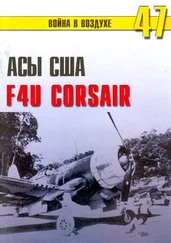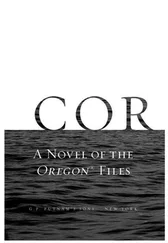‘Where did the captain keep his papers?’
Benjamin showed him into a small cabin in the stern of the vessel. A quick search of the dead captain’s documents revealed that the vessel was the L ’ Arc-de-Ciel from La Rochelle. There were maps and charts of the west coast of Africa, of the mid-Atlantic, and the Caribees. There was no doubt that L ’ Arc-de-Ciel was a slaver.
Benjamin and Hector returned on deck. It was growing dark. Soon there would be the short tropical dusk, then nightfall. ‘Should we anchor for the night?’ Hector asked Dan. The Miskito seemed confident in his ship handling.
Dan shook his head. ‘Our remaining anchor is not heavy enough to hold us in this current. With a little moonlight we should be able to avoid the mudbanks. We had best keep going.’
Hector turned to the Laptot. ‘How far to the mouth of the river? When we get to St Louis, we can put you and your companion ashore. But we cannot visit the place there ourselves. One of us,’ he nodded towards Bourdon, ‘is a rowing slave who has run away. His former masters were French and would seize him.’
Benjamin looked doubtful. ‘What will happen to the ship?’
‘I don’t know,’ said Hector. ‘My friends and I are hoping to go to the Americas.’
Bourdon spoke up. ‘Then why don’t we try to sail this boat all the way?’
Hector looked at Dan. ‘Is that possible?’
Dan thought for a long time before replying. ‘It could be,’ he said cautiously. ‘We’ll need good weather. And our greatest difficulty is that we are so few aboard. Jacques, Hector and myself – that’s not enough to manage the ship.’
‘Then take us with you,’ said Benjamin suddenly. Hector blinked in surprise. Benjamin spoke urgently to his companion in their own language, then turned back to face the others.
‘If we return to St Louis, the governor will want to know what has happened to the ship. We will be accused of failing in our duty to the captain, or even of killing him and the foreign crew. We may be hung and certainly we will lose our freedom and be sold again as slaves.’
‘Can’t you go ashore somewhere else, not at the Residence?’
Again Benjamin shook his head. ‘We are Laptots. We were brought to St Louis as slaves, and our own homelands are far away. The local people would not accept us. Besides, without us you will never cross the bar.’
‘What do you mean?’
‘There are many sandbanks and mud shoals where the river runs into the sea. Ships can come in and out when the river is in flood, but now it is almost too late. This is the season when the sea breaks heavily on the bar, and it is very dangerous. It needs local knowledge to find a way through the obstacles and a travado to help us.’
‘A travado?’
‘A great gale of wind from the north-east, from the desert. The wind blows opposite to the sea, and drives back the waves. Also the ship is pressed forward and crosses the bar quickly.’
‘Then we must all hope for a travado.’
Benjamin appeared to hesitate, then asked, ‘Once we are out to sea, who will show us the way, who will navigate the ship? You said you were not a ship’s captain, but now you are sounding like one.’
Hector found himself saying nervously, ‘I’ve never navigated a ship before. But I think I can learn.’

WITH THE RIVER CURRENT sweeping her along, L’Arc-de-Ciel took less than a week to reach the bar at St Louis. Hector spent much of the time studying the dead captain’s sea charts and trying to understand his navigation instruments. The main item was a mystifying device as long as his arm and carefully stored in a cherrywood box. Its open frame supported two wooden arcs engraved with degrees of angle. Three small vanes were attached to each of the arcs, and he found he could slide the vanes back and forth. One of them was fitted with a lens. Puzzled, he took the instrument on deck and tried to use it. But it defied logic. He held the instrument up to his eye and tried looking through the lens. Then he slid the vanes to different positions. The angles they recorded made no sense. He turned the device around, and tried looking through it the other way. Still nothing worked. Bourdon strolled over to see what he was doing, and commented that he had seen an architect using something similar when he had visited the building work at Versailles. ‘It’s for measuring angles,’ he commented. ‘I know that already,’ snapped Hector, increasingly frustrated. ‘If I could use it to find the angle of the sun or of the north star, then it would be better than the astrolabe I learned to use among the Turks. There’s a book of tables among the captain’s possessions which gives the height of the sun or the star at different locations at different times of the year. With that knowledge I might even be able to take us to the Caribees.’
The Frenchman tactfully withdrew, leaving Hector to wrestle with his problem. Unexpectedly Benjamin provided the solution. He had seen the captain of a visiting ship use a similar gadget. Benjamin had thought the captain was touched in the head, for he had held the instrument to his eye in broad daylight and when facing out to the open sea. There was nothing on the horizon to look at. ‘You must be wrong, I’m sure he was measuring the angle of the sun,’ Hector growled. He was really irritated now.
‘No,’ the Laptot insisted. ‘He was looking out to sea. The sun was behind him.’
To save his dignity, Hector waited until Benjamin had walked away before, still doubtful, he turned his back to the sun, peered through the lens, and fiddled with the vanes. By chance he saw the shadow of a vane pass into vision and across a graded arc. He lifted the instrument until it was level with the horizon and adjusted the vanes again. He placed the vane’s shadow steadily on the arc, then brought the instrument down and took the reading. It was in the range of numbers in the captain’s book of tables. He had discovered how to bring the ship to her destination.
They stopped only once on the river voyage, a brief halt at a friendly village to take fresh supplies and top up their water barrels. Then they dropped downriver until they began to feel the rise and fall of the tide, and Benjamin warned that the Residence of St Louis lay just ahead. ‘We must stay close to the left-hand shore. The guns of the Residence do not reach that far. A few ships will be anchored in the roadstead, maybe a man of war also, but we can slip past them if the wind favours us.’ He pointed to the north. A small dark cloud could be seen, far in the distance. ‘I think we are lucky with the weather.’
As the day wore on, banks of thick, dark cloud formed on the horizon and began to coalesce into a solid black mass. From the underbelly of the clouds flickered distant flashes of lightning. Along the river there was an atmosphere of foreboding. The breeze dropped away and was replaced by an oppressive calm. The air seemed to thicken and become slightly opaque. It was difficult to breathe. The sloop glided on, her sails slack, carried only by the current. Hector listened carefully. There was a faint roaring sound far away. ‘What’s that noise?’ he asked Benjamin. ‘That’s the sound of the waves breaking on the bar. Let us hope that the travado reaches us before we are in the overfalls, and that the ship survives the wind.’
Half an hour later the storm broke. There was a tremendous thunderclap and a great gust of wind swept across the river, driving spray from the surface. The squall struck the sloop like a fist. With a loud clap of canvas, the mainsail bellied out, and the sloop heeled over. Hector heard the groan of the stays under the sudden strain. L ’ Arc-de-Ciel surged forward as Dan and Benjamin struggled to control her helm.
Читать дальше









